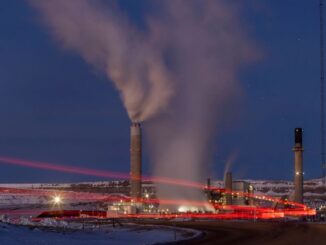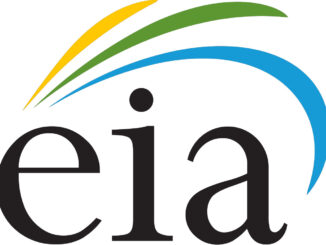
President Joe Biden outlined ambitious new plans for taking on climate change on Wednesday, but the most potent weapon may already be in his arsenal.
The five-member Federal Energy Regulatory Commission is poised to play a pivotal role fulfilling Biden’s clean-energy ambitions, including his vow to strip greenhouse gas emissions from the power sector over the next 14 years. FERC could help Biden deliver on those promises by fostering carbon prices on electricity, propelling a massive build-out of high-voltage power lines and making it harder to build natural gas pipelines.
“Transforming the American electric sector to produce power without carbon pollution will be a tremendous spurt of job creation and economic competitiveness in the 21st century,” the president said Wednesday, as he signed a series of climate directives.
Biden can’t count on help from Congress. With Democrats having only a narrow hold on the House and Senate, it’s unlikely both chambers will pass broad clean energy legislation, including a nationwide renewable power mandate.
Enter FERC, which can accomplish many of the same goals, said Ari Peskoe, director of Harvard Law School’s Electricity Law Initiative
“FERC will be an indispensable player in the Biden administration’s clean energy agenda,” Peskoe said. “It’s the federal regulator of two major energy industries — the power sector and the natural gas industry — so it matters a lot in how this energy transition plays out.”
The commission has a big say in the nation’s energy mix because of its role overseeing gas pipelines, liquefied natural gas export facilities and wholesale power markets. The agency dictates how electricity is bought and sold in those wholesale markets, which are where most utilities get their power. And the commission’s decisions governing natural gas pipelines can give developers a green light to invoke eminent domain and install the projects on private land.
Last week, Biden designated Richard Glick as chairman, giving one of the panel’s two Democratic members a chance to immediately steer the agenda. The remaining three seats are set to be occupied by Republicans through mid-year.
There are signs already of FERC’s new approach. Glick complained in a meeting earlier this month that the commission has not paid enough attention to how local, often disadvantaged communities are affected by the natural gas projects FERC scrutinizes. “I have been at the commission for three years, and I’ve seen little in the way of orders to do more than give lip service to environmental justice,” Glick said. “That needs to change .”
And in her opening remarks as a Democratic commissioner, Allison Clements stressed she planned to consider “the grave threat of climate change” in her decisions for the panel.
Environmentalists are counting on FERC to make major changes pushing the nation away from fossil fuels. Activists have already briefed Biden officials on how FERC can impose a climate litmus test to effectively block future natural gas projects. They also are urging policies to encourage state programs rewarding emission-free renewable and nuclear power.
And they have outlined ways FERC can help deliver on Biden’s promise “to build the next generation of electric grid transmission,” with high-voltage power lines that can deliver low-cost renewable power from the Midwest to customers in big coastal cities.
That is critical to meeting Biden’s 2035 goal of carbon-free electricity, said Rob Gramlich, a former FERC policy adviser and founder of Grid Strategies LLC. “You just can’t achieve significant decarbonization without major changes to the grid,” Gramlich said.
FERC’s past transmission efforts have mostly spurred small, local projects, said Jeff Dennis, managing director of Advanced Energy Economy, an association of clean energy businesses. Now, the commission can reform planning processes to encourage big transmission projects that cross multiple jurisdictions and “are really critical to unlocking more capacity for renewables,” Dennis said.
Even a small shift in FERC’s approach to renewable energy could buttress state efforts to subsidize emission-free nuclear, wind and solar power.
States are “a real driver of decarbonization policy,” and FERC policy can ensure they have the power to “to go further and faster,” Dennis said.
Biden Agenda Includes More Electric Cars, Work Visas: QuickTake
Already nearly three dozen states in FERC-regulated markets have adopted clean-power goals.
“A lot of the actions are going to be taking place at the state level in the absence of federal leadership,” said FERC commissioner Neil Chatterjee, a Republican whose term expires at the end of June. “That is going to put FERC squarely in the epicenter of that debate.”
FERC had a mixed record enabling a clean energy transition under former President Donald Trump. On the one hand, it imposed regulations making it easier to integrate battery storage into the grid and explored ways to spur transmission lines critical to support offshore wind farms. However, it also created hurdles for renewable electricity while helping to sustain natural gas power plants, including by imposing a minimum price floor for sales of state-subsidized renewable power in capacity auctions run by the largest U.S. grid.



